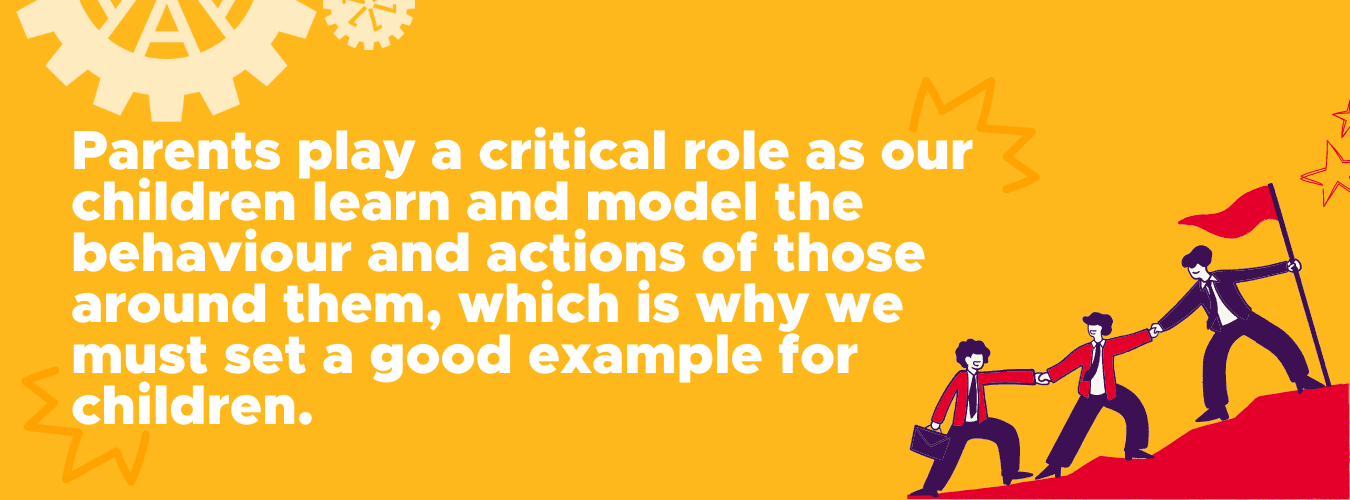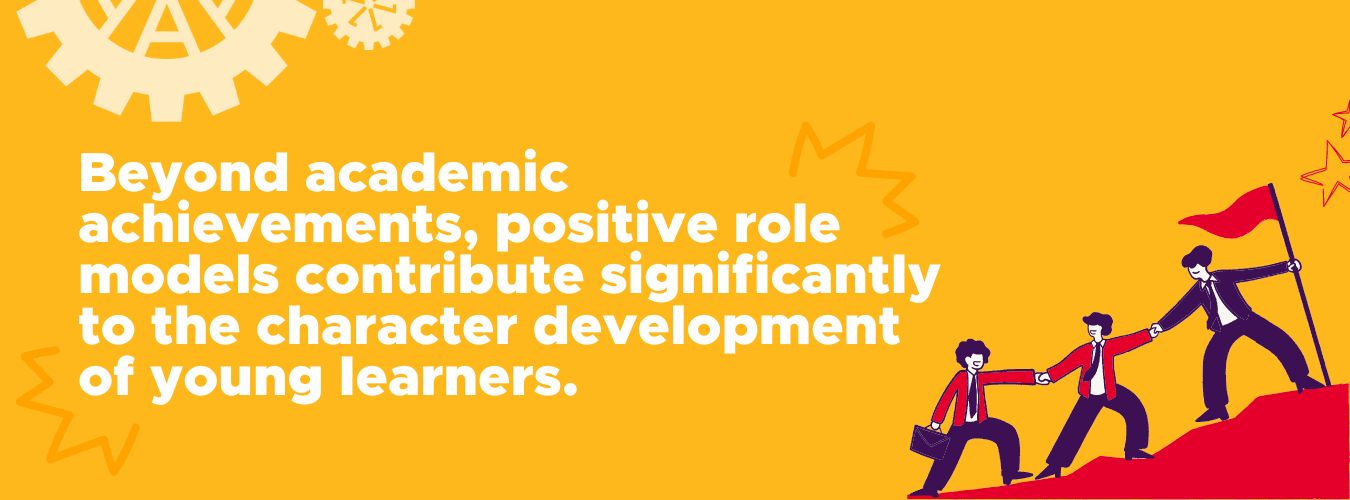Good Role Models for Kids

Young learners derive inspiration from a variety of role models and adults, shaping their behaviour, relationships, and decision-making. While parents, teachers, and peers commonly serve as vital role models for many children, others find influence in celebrities, athletes, and fictional characters from television or movies.
Positive role models significantly contribute to the development of students, inspiring motivation, instilling positive behaviour, influencing life decisions, and fostering the pursuit of goals. However, this blog post explores the importance of having impactful role models for students.
Positive Role Models
Exemplary role models play a pivotal role in guiding individuals along their path of personal development and advancement. These influential figures, spanning from parents and teachers to community leaders and admired personalities, wield substantial influence in shaping the values, attitudes, and aspirations of individuals, especially the younger generation.
By embodying virtues like integrity, resilience, and compassion, positive role models spark a desire for excellence and a commitment to making positive contributions to society. Their impact transcends mere achievements, shaping the formation of strong moral compasses and instilling the belief that challenges can be overcome through dedication and perseverance. In a world teeming with diverse influences, the presence and example of positive role models act as a guiding light, illuminating the route toward character development, self-discovery, self-care, and the realisation of one's full potential.
Children Are Easily Influenced
Whether our children are engrossed in video games or social media, their interests wield significant influence over them. This impact can manifest as either positive or negative, underscoring the critical importance of providing our children with positive role models. While athletes and celebrities may be the first to come to mind, the foundation for exemplary role models is laid within the home.
Parents play a pivotal role in shaping their children's learning experiences and modelling behaviour. This underscores the necessity for parents to serve as exemplary figures, setting a positive example for their children. Through actively demonstrating constructive actions, practising appropriate behaviour, and embodying positive values, parents can evolve into influential role models, fostering the development of their children into the best versions of themselves.

Inspiration and Motivation
Role models possess the passion and skills to inspire, motivate, and encourage young learners to aspire to greatness. Students commonly seek guidance not only from the adults in their lives but also from the celebrities they admire.
Throughout their learning journey, students are bound to face challenges. Thus, it becomes crucial for exemplary role models to showcase resilience, the capability to overcome obstacles, and to stay motivated. Good role models serve as living proof that no obstacle is insurmountable. They openly share both their struggles and triumphs, mirroring the experiences of everyone else, acting as a testament to the notion that hard work and determination can lead to success. The influence of a positive role model inspires students to invest the same effort and dedication required to ascend the ladder of success.
Instil Good Behaviour and Habits
Students, given their high susceptibility to influence, often pattern their behaviour after role models and the adults in their immediate environment. For those who absorb knowledge through mimicry and emulation, it is crucial to ensure that our children have ample opportunities to encounter positive role models. This exposure plays a vital role in their development, nurturing the cultivation of good habits and behaviours from an early age.
Role models assume a pivotal role in the development of young learners. Children are naturally inclined towards emulating the actions and values of their role models. In the presence of inspiring figures or individuals showcasing positive behaviour, children are inclined to imitate and internalise these behaviours. Role models who consistently exemplify good behaviour and positive habits significantly contribute to assisting students in incorporating these traits into their own lives.

Achieving Goals
Students carry a myriad of goals along their learning journey, yet the path is often beset with distractions and challenges that can erode their confidence, especially after setbacks. Role models act as a blueprint for success, providing inspiration and motivation for students to set and achieve ambitious goals.
Effective role models empower and motivate students, guiding them in the dedicated pursuit of their goals and aspirations. By exemplifying a pathway to success, role models also ensure that students understand and acknowledge the inevitability of hardships and failures along the way. When students look up to these role models, they not only align with their principles but also find encouragement to establish and achieve their own goals.
Lessons Beyond the Classroom
Beyond academic achievements, positive role models play a pivotal role in moulding the character development of young learners. Teachers, assuming prominent roles as models within the educational setting, extend their influence beyond the dissemination of knowledge. They shape students' attitudes, work ethic and interpersonal skills.
By embodying positive qualities like empathy, resilience, and a genuine passion for learning, educators become sources of inspiration, contributing to the holistic development of students. The positive impact of these role models extends beyond the confines of the curriculum, instilling essential values and qualities that complement academic success. This approach aids in creating well-rounded individuals who are equipped to face the challenges awaiting them in life beyond the classroom.

Community and Peer Role Models
While parents, teachers and celebrities are often in the spotlight as role models, the influence of peers and community members should not be underestimated. Positive role models within the community contribute to a collective sense of responsibility for fostering a nurturing environment for young learners.
Peers who exemplify kindness, inclusivity, and a commitment to positive values can exert a significant and positive influence on the social development of young individuals, as well as other family members and students. By nurturing a sense of unity and shared values within the family and community, a network of positive influences and role models emerges. This reinforces the importance of collaboration and mutual support in working towards common goals.
Cultivating a Growth Mindset
Positive role models play a pivotal role in fostering a growth mindset among students. In any educational journey, challenges and setbacks are inevitable. Role models act as exemplars, demonstrating how to approach obstacles with a positive and resilient mindset.
By sharing personal experiences involving adversity and triumphing over hurdles, role models inspire students to view challenges as opportunities for growth rather than insurmountable barriers. This shift in mindset empowers students to embrace difficulties, learn from failures, and persist in the face of adversity.

The guidance provided by positive role models not only contributes to academic success but also cultivates a mindset that encourages continuous learning and self-improvement. As educators at NumberWorks’nWords, we consistently lead by example, recognising the significant responsibility of setting a positive precedent for our students and influencing them beneficially.
If your child requires additional support with their learning, tutoring with NumberWorks’nWords can be instrumental. Our individualised maths and English tutoring programmes help students overcome challenges and strive to achieve their learning goals. To learn more, get in touch with your local centre, or book a free assessment to help your child today!




